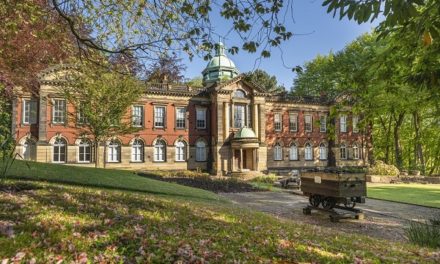Council leaders have pledged their absolute commitment to securing more levelling up funding after a previous successful bid was held up as an example of best practice.
This week, the Chancellor of the Exchequer confirmed the second round of the £4.8 billion Levelling Up Fund within his spring statement.
Durham County Council secured £20 million in the first round of the funding for the Bishop Auckland constituency, as part of a broader £32 million investment.
And, in the round two prospectus published this week, the bid was used as a case study within the Transport category. This aims to support projects with the power to revitalise local economies by boosting growth, improving connectivity, and making places healthier, greener, safer and more attractive places to live and work.
Following the announcement, Cllr Amanda Hopgood, Leader of Durham County Council, and Cllr Richard Bell, Deputy Leader and Cabinet member for finance, said the use of the bid as a case study was testament to the hard work of council officers.
They also reiterated the local authority’s intention to develop additional bids for other parts of the county and urged residents and businesses to share their own priorities for County Durham by taking part in the Big Econ-versation at www.durhamecon-versation.co.uk. Launched in January, this runs until Friday 22 April and the findings will help shape a new and inclusive economic strategy for the county.
Cllr Hopgood said: “We welcome the confirmation of the second round of the Levelling Up Fund and are delighted our Bishop Auckland bid has been highlighted as an example of best practise.
“We are now studying the updated prospectus closely to ensure we can develop proposals that will deliver significant and long-lasting improvements to our communities in line with the funding criteria.
“Levelling up has become a buzzword in recent years but really this is all about fairness and ensuring residents and businesses in County Durham have access to the same opportunities as elsewhere in the country.
“Attracting national investment, creating and safeguarding jobs and seizing opportunities such as County Durham’s shortlisted bid to be UK City of Culture 2025 are a key part of this. Equally important is the regeneration work we are carrying out with our partners on a local level to enhance the vibrancy of towns and villages across the county.
“We believe it’s important to take County Durham residents and businesses with us on this journey, which is why I would urge people to take part in our Big Econ-versation. This is a chance to help develop an inclusive economic strategy that serves everyone.”
County Durham contributes £9 billion annually to the region’s economy and supports 174,000 jobs in 14,565 businesses. And while the value of the goods and services produced in the county has increased by 43 per cent (£2.6 billion) over the last 15 years, this is significantly below the national rate of growth of 64 per cent.
Cllr Bell said: “County Durham’s can-do attitude and reputation as a place of innovation have never been stronger. Despite the decline of traditional industries, the county remains a manufacturing powerhouse that is experiencing growth in key sectors, including engineering, science and technology.
“However, we have so much more potential, and we need government support to unlock this. We are already working alongside our public and private sector partners to deliver a multi-billion-pound regeneration programme for the county. Further government investment would support our levelling up ambitions and help us to achieve the best outcomes for our residents and businesses.
“I am extremely proud that our first round levelling up bid has been used as a national case study of best practice. This is a testament to the hard work of our officers.”
The £20 million awarded to Durham County Council in the first round of the Level Up Fund will help in delivering a heritage corridor masterplan focussed on the visitor attraction Locomotion in Shildon and the Stockton and Darlington Railway Line.
It will also allow the re-routing of the A68 at Toft Hill, creating a new 1.6-kilometre bypass away from the village centre to help to improve journey times, reduce traffic and improve road safety through the village.
Whorlton Bridge, the UK’s oldest road suspension bridge in Teesdale, will also benefit. The bridge has been closed to all users since December 2020, but with funding now in place to support the necessary works, it is planned to reopen in summer 2023. A visitor centre will be developed as part of the works, allowing users to celebrate the bridge’s transport heritage.
An 18-kilometre walking and cycling route, meanwhile, will also support residents and visitors in active travel, linking rural communities to Bishop Auckland and Newton Aycliffe, as well as to the National Cycle Network.











